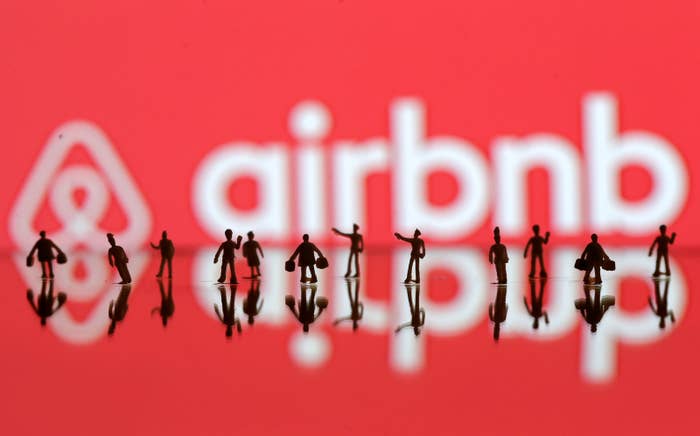
Senator Elizabeth Warren has called on the Federal Trade Commission to investigate short term rental platforms like Airbnb and HomeAway to examine the impact these businesses have on the supply of affordable housing.
In a letter sent to FTC Chair Edith Ramirez Wednesday, Warren asked the Commission to “study and quantify” the type of renters who are offering their homes on the platforms. The goal of the inquiry would be to determine what percentage of hosts are “acting in a commercial manner by renting out entire residences and or multiple residences simultaneously.” Obtaining that data, Warren said, will give Congress and local authorities a better grasp of home-sharing’s effect on neighborhoods.
Joined by Senators Dianne Feinstein and Brian Schatz, the lawmakers wrote, “we are concerned that short term rentals may be exacerbating housing shortages and driving up the cost of housing in our communities.” The Senators also referenced growing concerns over racial discrimination on rental platforms as well as health and safety risks.
Citing a public FTC workshop on the “sharing economy,” last month, the Senators said there is “widespread agreement” on the need for additional data to measure the impact of short-term rentals. But the lawmakers contend that companies like Airbnb have been reluctant to hand that data over. “And even if platform companies do share their data, concerns have been raised about the reliability of this data,” states the letter.
A spokesperson for the FTC confirmed that the commission received the letter but could not comment further. A report of the “sharing economy” workshop is expected to be released by the FTC this fall.
In a statement to BuzzFeed News, Chris Lehane, Airbnb’s head of policy said, “We welcome any opportunity to work with lawmakers and regulators who want to learn more about how home sharing helps the middle class address the issue of economic inequality.”
Lehane said the vast majority of Airbnb hosts in each of the Senators’ home states — Massachusetts, California, and Hawaii — “are middle class people who depend on home sharing as a way to address economic inequality.” He also cited a recent Airbnb study that showed 51 percent of its hosts rely on the money they make through rentals “to make ends meet.”
But some housing advocacy groups and state and local officials have disputed Airbnb’s claims that its platform is a boon to working people.
“Everytime we get new data it undermines another piece of their messaging,” Roy Samaan a policy analyst with the Los Angeles Alliance for a New Economy, a progressive advocacy group, told BuzzFeed News. Samaan led a 2015 study in Los Angeles that estimated 7,000 houses and apartments in the city were taken off the market to be used as short-term rentals, worsening a housing crisis there.
But even as some experts say such figures are too small to meaningfully impact the market, the presence of “professional” home-renters flouting local laws and the absence of comprehensive data are issues cities are struggling to death with.
“These companies have very advanced metrics, they know what's going on, but they’ve refused to release it or work with cities in any constructive way,” Samaan said.
In a widely cited report issued by New York Attorney General Eric Schneiderman in 2014, up to 72% of Airbnb’s listings in New York City were found to be illegal. The report also appeared to undermine Airbnb's image as an engine of economic growth for the working class. Commercial renters, some of whom controlled more than 10 apartment buildings in the city, “dominated the platform” in terms of revenue, Schneiderman found. According to the report, large-scale renters claimed 37% of the city’s Airbnb revenue. The data behind Schneiderman’s findings came from Airbnb, but only after the Attorney General’s office subpoenaed the company.
“Time and again, Airbnb has gone to great lengths to hide illegal activity on its site by refusing to release comprehensive data—aside from glossy reports with selectively-chosen statistics," a spokesperson for Attorney General Schneiderman told BuzzFeed News. "The company’s unwillingness to police its own activity and be a good corporate citizen is the reason government actors have had to step in to try to clean up their act.”
San Francisco, Airbnb’s home town, has also pushed back against the company’s rapid growth. City officials have drafted rules to limit the number of days a person can offer a short term rental and introduced a registration process for hosts, seeking to address criticism that companies like Airbnb were exacerbating housing shortages by converting affordable homes into hostels. An amendment to the housing rules would expose Airbnb and other platforms to steep fines for every unregistered host on their platforms.
Last month, Airbnb sued the city of San Francisco to block the amendment — and the potential fines — from advancing. The city now appears to be backing down.
